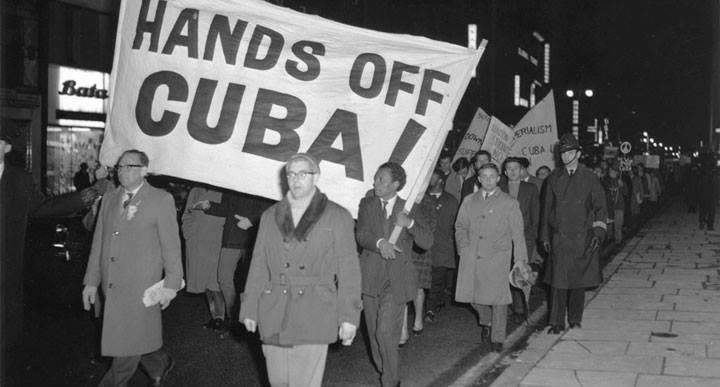
The blockade: On the way to 100 years
NEW YORK — An old saying tells us that “there’s no evil that lasts 100 years,” even though the United States’ perverse blockade of Cuba seems on the way to being the first such evil.
That is, the “embargo,” central piece of what passes for a U.S. policy toward the island, has lasted more than 52 years and continues to inflict damage, immovable, intact, immune to reason, a dark and absurd monument to politicking, hypocrisy and stubbornness.
Incredibly, like a tumor that cannot be removed, the blockade is not likely to disappear in the foreseeable future.
A strong contender for the doubtful honor of the longest-lasting Failed Foreign Policy ever, the blockade is — in addition to cruel — shameful. Nobody wants it: the world has condemned it at the United Nations General Assembly for 22 consecutive years, every year with a greater majority. In 2013, the vote was 188 nations to 2, with the U.S. and Israel the only opponents.
In a few weeks, the U.N. will again reprise the issue, marking 23 years in which the world has repudiated — almost unanimously — Washington’s policy toward Cuba.
It is not wanted by a growing number of editorial boards, blogger Yoani Sánchez, Hillary Clinton and President Obama himself, who last year declared: “We have to continue to update our policies. Keep in mind that when Castro came to power I was just born.”
Of course, talk is cheap and Obama, the president of fogginess, is used to making statements that he rarely follows up. And this case has been no exception. In fact, in early September, Obama quietly renewed the embargo against Cuba for one more year. A strange way to update relations with Havana, indeed.
But it is in Latin America — beyond ideological and political differences — where leaders fully comprehend how absurd and gratuitously cruel U.S. policy is.
Addressing the U.N. General Assembly last week, the presidents of Venezuela and Bolivia, Nicolás Maduro and Evo Morales, close allies to Cuba, expressed their repudiation of the anachronistic blockade.
They were joined by the President of El Salvador, Salvador Sánchez Cerén, whose voice did not waver when he condemned the fossilized U.S. policy and urged Washington to remove Cuba from the list of terrorist countries “whose only purpose is to justify the blockade.”
“In the quest of efforts toward peace and equitable development, there is no room for the contempt for the basic principles and freedoms that is contained in the economic, commercial and financial blockade against the sister nation of Cuba, a country that, despite those unilateral actions against its people, has overcome with special perseverance and determination the obstacles and adversity thrust upon her,” said the Central American leader, a former guerrilla.
More unexpected was the statement from Juan Manuel Santos, president of Colombia.
“I am confident that the United States and Cuba can establish a working relationship that will allow the U.S. to lift an embargo that, from my point of view, has failed,” said Santos to the General Assembly. “It would be useful if the U.S. would rethink the situation — another way to be more flexible.”
Coming from the president of a country that for many years has faithfully followed the dictates of Washington, Santos’ words have a special weight.
Those words caused Roberta Jacobson, Assistant U.S. Secretary of State for Latin America, to immediately respond to Santos, making it clear that U.S. policy toward Cuba, despite being a failure, has not changed a jot in half a century.
“We have always had the greatest respect for President Santos. We admire and support him. But this is one of the issues on which we disagree,” Jacobson said.
In other words, the only thing that can be expected of Obama and his administration with regard to Cuba is more of the same.
Meanwhile, the blockade — unjustifiable from every point of view — remains in place, like a malignant tumor that cannot be removed.
* Featured Image: Members of the Campaign for Nuclear Disarmament (CND) march during a protest against the U.S. action over the Cuban missile crisis, on October 28, 1962 in London, England.


